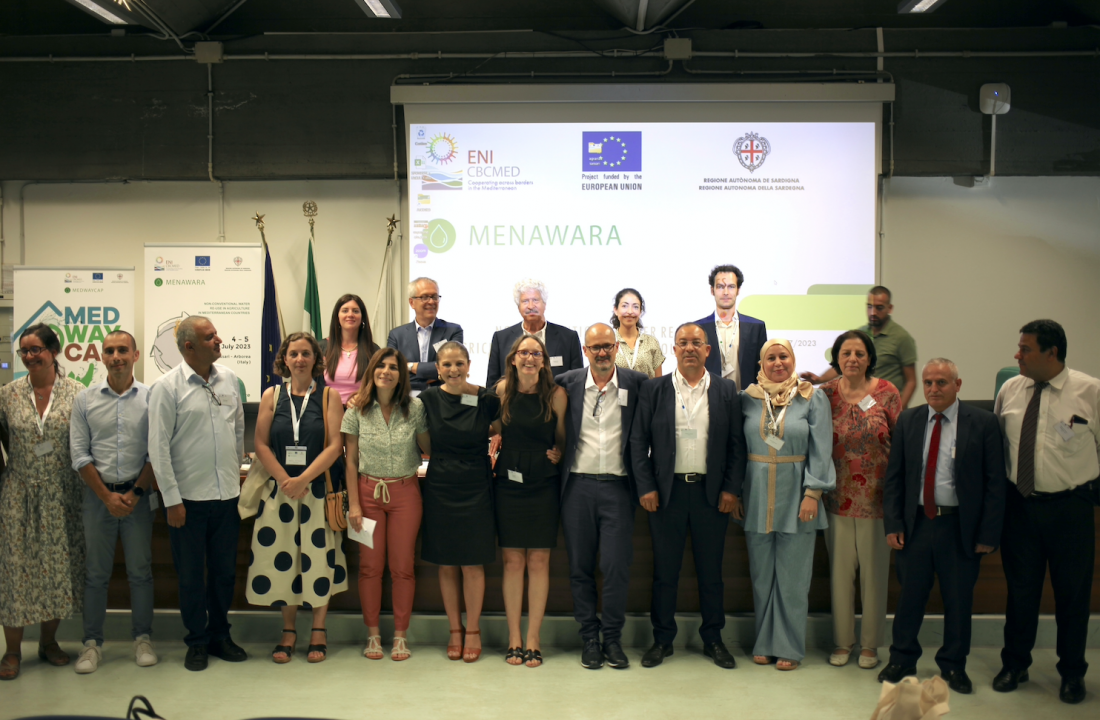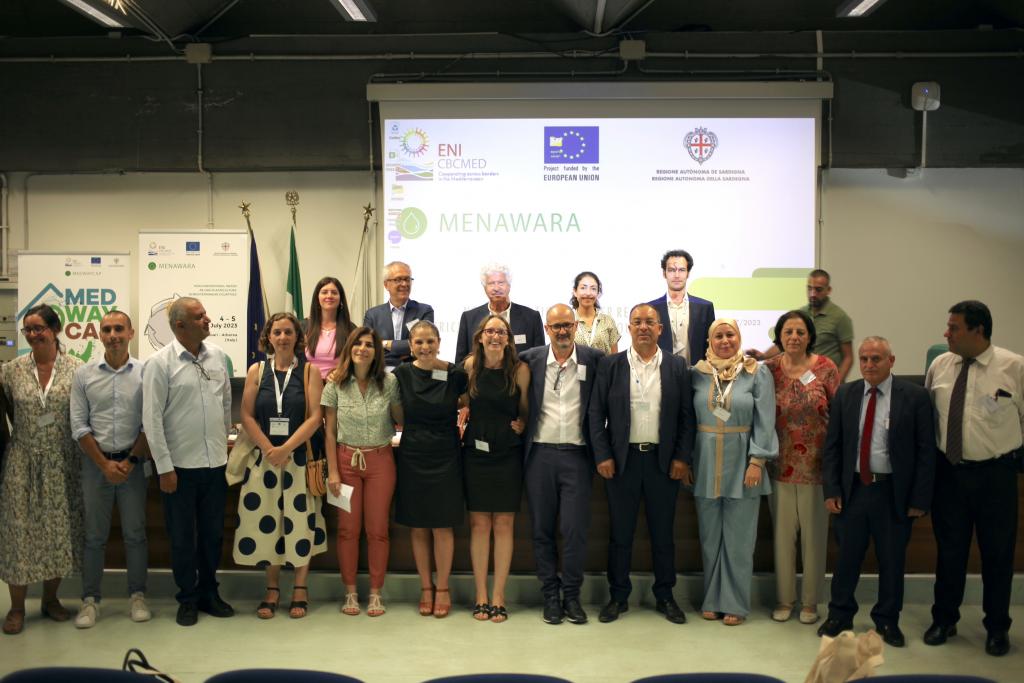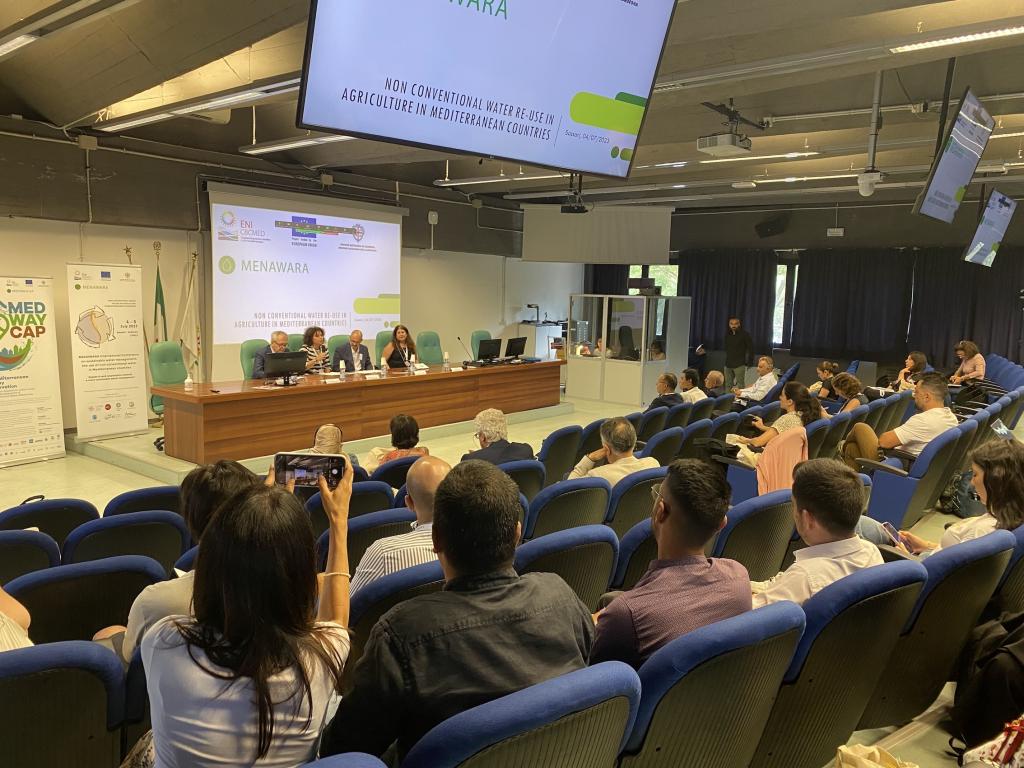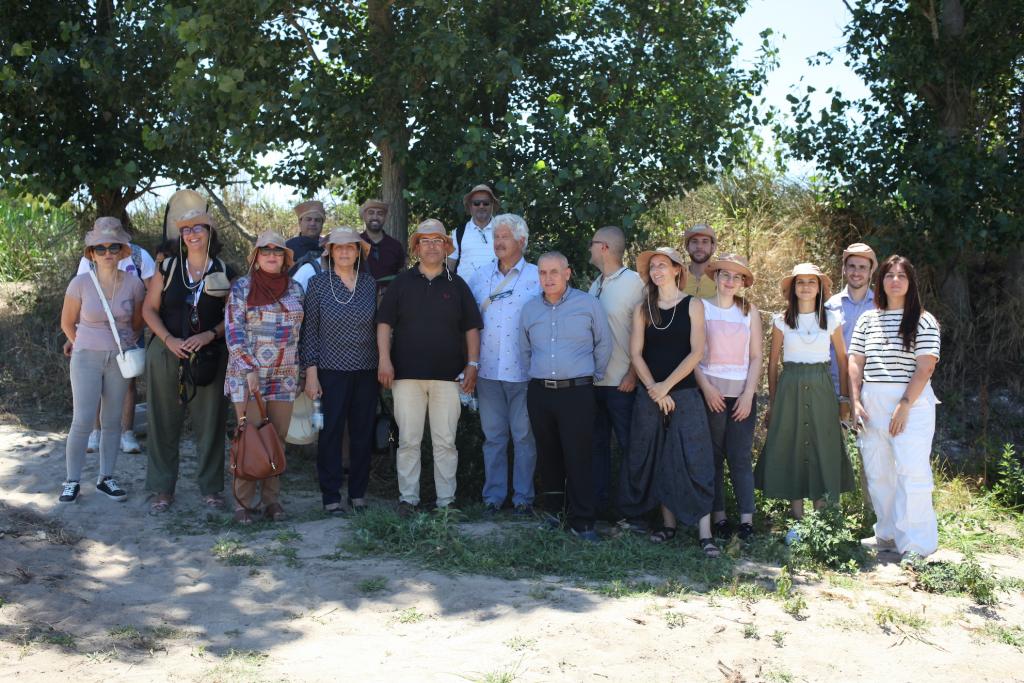MENAWARA final event in Sardinia celebrates achievements in sustainable water management

The use of non conventional water has been at the core of the MENAWARA final event organized in Italy by the Desertification Research Center of the University of Sassari on the 4th and 5th of July.
The conference brought together national and international stakeholders, including public and private authorities from various Mediterranean regions, to showcase the successful implementation of projects on non-conventional water reuse, highlighting the technical and scientific achievements of MENAWARA.

MENAWARA, "Non-conventionAl WAter Re-use in Agriculture in MEditerranean countries", which involves 6 partners from Italy, Spain, Palestine, Jordan and Tunisia with a budget of about 2 million nine hundred thousand euros, is funded by the ENI CBC "Mediterranean Sea Basin Programme 2014-2020," a cross-border cooperation program co-financed by the European Union under the European Neighbourhood Instrument (ENI).
Throughout the past four years MENAWARA carried out important actions aimed at providing additional water resources by recycling drainage and wastewater (WW), rationalizing water use practices in agriculture and setting up operational governance models in line with national and international plans.
Innovative techniques adopting the “fit-to-purpose” approach in water reuse, to meet the needs of the intended end-users and stakeholders’ engagement with “Living Labs”, represent the key elements of the project.
One of the notable pilot initiatives includes the restoration of a wastewater treatment facility in Beit Dajan, a village located in northern Palestine. Through a participatory approach, the project facilitated the establishment of the "Water User Association," enabling them to efficiently irrigate 7.5 hectares of olive groves, grapes, citrus trees and fodder crops, thereby bolstering the agricultural sector in the Region.
In Jordan, the National Agricultural Research Institute has implemented new pre and post treatments in Ramtha’s Wastewater treatment plant to irrigate 4.5 ha of fodder crops, while testing different irrigation systems to identify the most effective one depending on the crops.
In Tunisia, the MENAWARA project financed pre and post-treatments in three intervention areas: Choutrana II, Sidi Amour, and Beni Hassen in Monastir. The outcomes have been significant, resulting in improving water quality and the possibility to irrigate about 40 hectares of olive groves.
The collaboration of European research centers has allowed the design of innovative low-cost pre and post-treatment systems for 7 WWTPs, as well as their implementation and monitoring, while supporting a variety of activities among local communities.
In Italy, the Desertification Research Center of the University of Sassari has implemented an innovative Forested Infiltration Area (FIA) to contribute to reducing and mitigating nitrate contamination in the aquifer of Arborea, with the aim of providing possible solutions to be replicated on a large scale to solve the problem of the diffusion of nitrates in the aquifer.
In Andalusia, thanks to MENAWARA, a disastrous season for olive cultivation has turned into an exceptional success thanks to the use of treated wastewater for irrigation of olive groves in one of the Mediterranean regions most affected by drought.
During the conference, the Agencia de Medio Ambiente y Agua de Andalucìahas also stressed the importance of the role of women in agriculture. Their active engagement and empowerment in agricultural activities contributes not only to the well-being of families and communities, but also to national economic growth. Promoting the role of women in the Mediterranean is a key element for the stabilization of territories and for the achievement of sustainable development, and one of the fundamental elements of the MENAWARA project.

A roundtable afternoon session reaped public success thanks to the participation of representatives from academia, European institutions (ENI CBC MED, PRIMA, UfM) and other key stakeholders who, as stated by the MENAWARA project coordinator – Dr. Alberto Carletti, researcher at the University of Sassari, agreed on the necessity to engage in research and foster cooperation among entities from various countries, under the auspices of the European Union, in order to explore every possible solution for tackling the pressing challenge of drought. First and foremost, this includes promoting the use of non-conventional water in agriculture.
Concluding the event, on the 5th of July, participants embarked on a field visit to Arborea which served as a pilot area for both the MENAWARA project and the MEDISS project, providing valuable insights and practical examples to further enhance the understanding and implementation of sustainable water management practices.

As project leaders, partners, stakeholders and beneficiaries reflect on the collaborative efforts carried out in the context of the MENAWARA project in the past four years, it becomes evident that together, they are paving the way for a more sustainable future for the Mediterranean region.
By embracing cutting-edge research, fostering cross-border cooperation, and promoting the use of non-conventional water in agriculture, MENAWARA not only tackled the pressing challenges of drought, but also facilitated the implementation of innovative projects, and capitalised on the importance of a shared vision for a greener and more resilient Mediterranean. With unwavering commitment and a shared sense of purpose, the ENICBCMED projects are charting a path towards a future of successful adaptation to the problem of water scarcity, with the aim of supporting agricultural communities to flourish in harmony with the environment.









